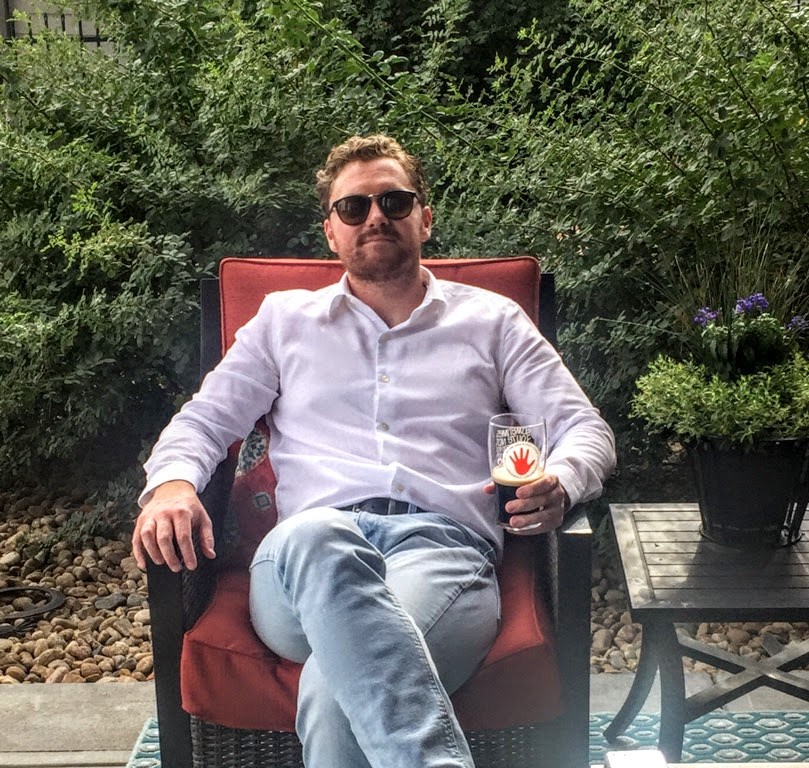About Me
Welcome
Welcome to my personal homepage! Throughout this website, I collect my thoughts on and interpretations of concepts about which I am passionate. Forcing myself to articulate such mental threads reinforces the respective thought processes that enabled conceptual lucidity in the first place. Put simply, explaining material through writing and teaching is an excellent mechanism for deepening one’s own understanding of the concepts taught. Plus, sharing my work with others is fun!
From my views on mathematics, finance, computer science, and programming to my ruminations on the books I’ve read, I’ve designed this website as a collection to be shared. Respectful, responsible use of the content that I post is encouraged, as long as proper attribution is provided (i.e., don’t forget to cite me!). I hope that you enjoy consuming my content as much as I enjoy creating it.
CV
Resume
[Logan’s Resume] see Logan’s CV… updated resume coming soon.
Bio
A Ph.D. candidate, I’m currently in my fourth year of graduate study at Stony Brook University. To put it succinctly, I am a mathematician working in theoretical computer science. Among many topics on which I work, my favorite areas of study include algorithmic game theory, complexity theory, computational geometry, and graph theory. Often, my work in these areas of study involves optimization. That is, I seek ways to achieve an objective most efficiently, e.g., minimizing cost, maximizing expected return, minimizing risk, minimizing run-time, etc. As a mathematician, I prioritize rigor and proof. My currencies are logic, reasoning, and well-justified arguments. Most importantly, I work hard to ask the right questions, for I see thoughtful question-asking as perhaps the highest-leverage use of time, expertise, and intellect when conducting research and developing new theory. My love of mathematics is most certainly not restricted to theorem-proving: one of my deepest passions is programming computers to implement the theory I so adore.
I was born in the suburbs of St. Louis, Missouri. Raised right, I followed Cardinals baseball and Mizzou (i.e., University of Missouri) football growing up. At Lafayette High School, I played golf (4 years), football (2 years), and participated in several leadership programs that shaped my development. Eventually, I attended Mizzou for my undergraduate career, triple majoring in Economics, Mathematics, and Statistics in the Honors College. At Mizzou, I was a member of the Delta Tau Delta Fraternity, a leader on campus in terms of fun, philanthropy, and brotherhood. The myriad of positive experiences I had at the university enabled formative professional and personal growth. My hard work paid off: in four years of study, I was fortunate to graduate from Mizzou with three degrees and five graduation-honors distinctions.
After I graduated from Mizzou, my family moved from St. Louis to Fort Collins, Colorado. I enjoyed a year in Colorado with my family after graduation, working full-time as a data scientist while also preparing for graduate school. To this day, I still visit Colorado frequently, especially to ski.
In the fall of 2017, I moved 2,000 miles to Stony Brook, New York. I knew just one New Yorker at the time, and I knew no one on Long Island. I did, however, have an opportunity to work with Joe Mitchell as his Ph.D. student. Joe is one of the world’s leading applied mathematicians, conducting research in algorithms and computational geometry. He is also a tremendously talented teacher. As such, I lept at the chance to move across the country to pursue my dream of becoming an elite mathematician and theoretical computer scientist. Entering into Joe’s academic network has been an extraordinary privilege. Consider my favorite areas of study. Algorithmic game theory was co-established by my academic grandfather, Christos Papadimitriou, and he played an important role in developing modern complexity theory as well. Joe, himself, has made substantial conditions to computational geometry, beginning his research in the subfield of algorithms within a decade of its inauguration. Prominent graph theorists circulate within our network too.
In the spring of 2020, I won the NSF-affiliated Science TRaining to Inform DEcisions (STRIDE) Ph.D. fellowship. Along with a competitive stipend, this fellowship provides exciting training in communication, data-visualization, data-backed storytelling, and engaging broad audiences. I’m thrilled to be a part of the STRIDE community, and I count my fellowship as one of the more influential experiences that I am enjoying in graduate school. For many mathematicians, effective communication is difficult; yet, for all mathematicians, effective communication is essential. The extent of training in this area is truly a unique experience, and I’m tremendously thankful to my STRIDE mentor, Stony Brook University Computer Science Professor, Klaus Mueller, and the Institute for Advanced Computational Science (IACS), within which STRIDE is contained.
Now, in the sprint of 2021, I am a Ph.D. candidate. My final step in the Ph.D. program is to write and defend my thesis. I intend to complete this and graduate in the spring of 2022. As I enjoy the time that remains in my Stony Brook career, I am focusing on publishing and extending work on which I have already made substantial progress. Upon graduation, my plan is to enter industry – either in quantitative finance or in tech.
